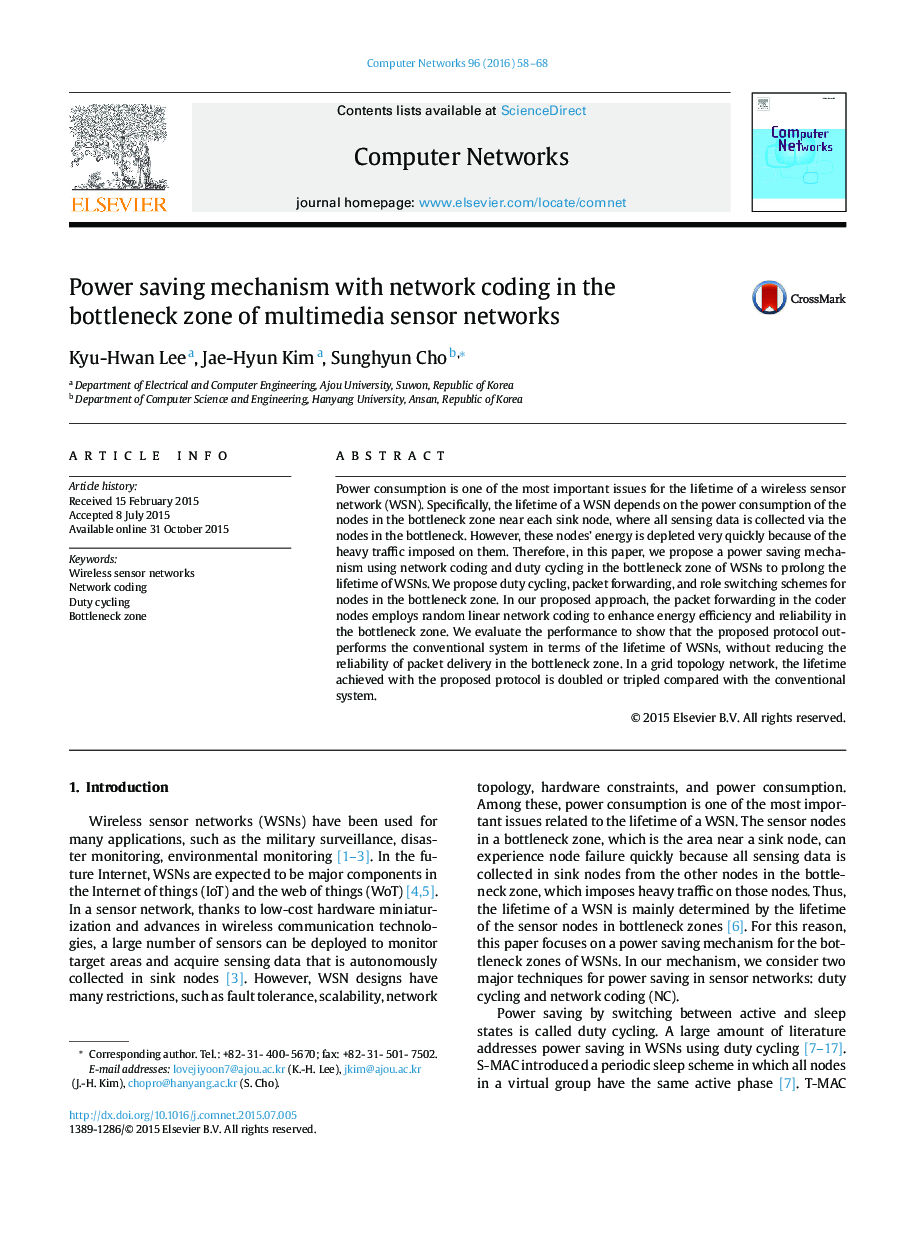| Article ID | Journal | Published Year | Pages | File Type |
|---|---|---|---|---|
| 451651 | Computer Networks | 2016 | 11 Pages |
Power consumption is one of the most important issues for the lifetime of a wireless sensor network (WSN). Specifically, the lifetime of a WSN depends on the power consumption of the nodes in the bottleneck zone near each sink node, where all sensing data is collected via the nodes in the bottleneck. However, these nodes’ energy is depleted very quickly because of the heavy traffic imposed on them. Therefore, in this paper, we propose a power saving mechanism using network coding and duty cycling in the bottleneck zone of WSNs to prolong the lifetime of WSNs. We propose duty cycling, packet forwarding, and role switching schemes for nodes in the bottleneck zone. In our proposed approach, the packet forwarding in the coder nodes employs random linear network coding to enhance energy efficiency and reliability in the bottleneck zone. We evaluate the performance to show that the proposed protocol outperforms the conventional system in terms of the lifetime of WSNs, without reducing the reliability of packet delivery in the bottleneck zone. In a grid topology network, the lifetime achieved with the proposed protocol is doubled or tripled compared with the conventional system.
